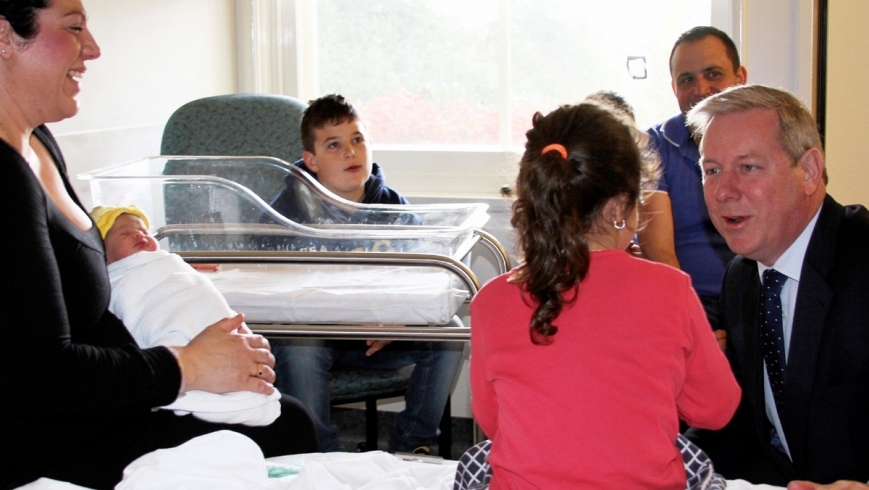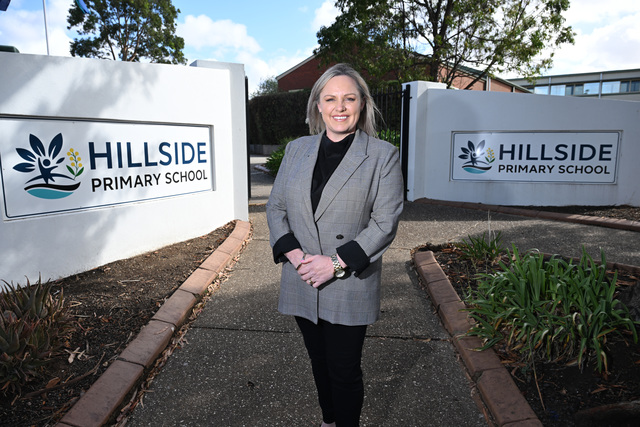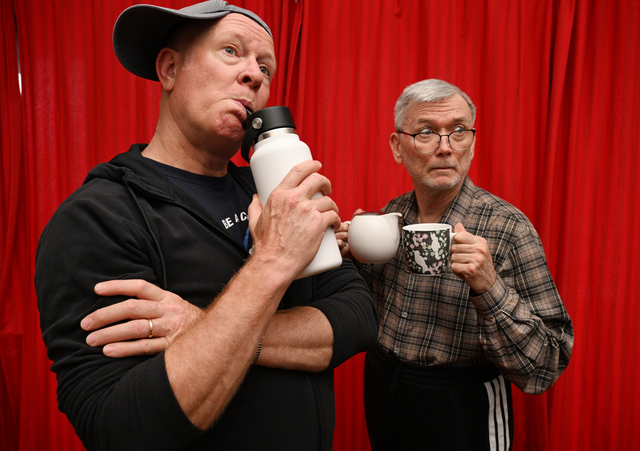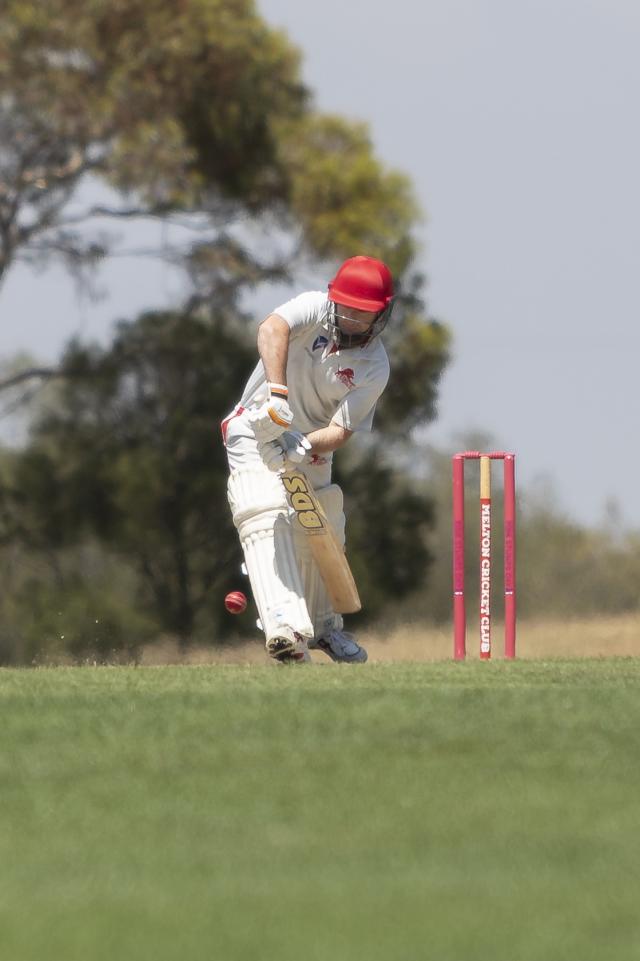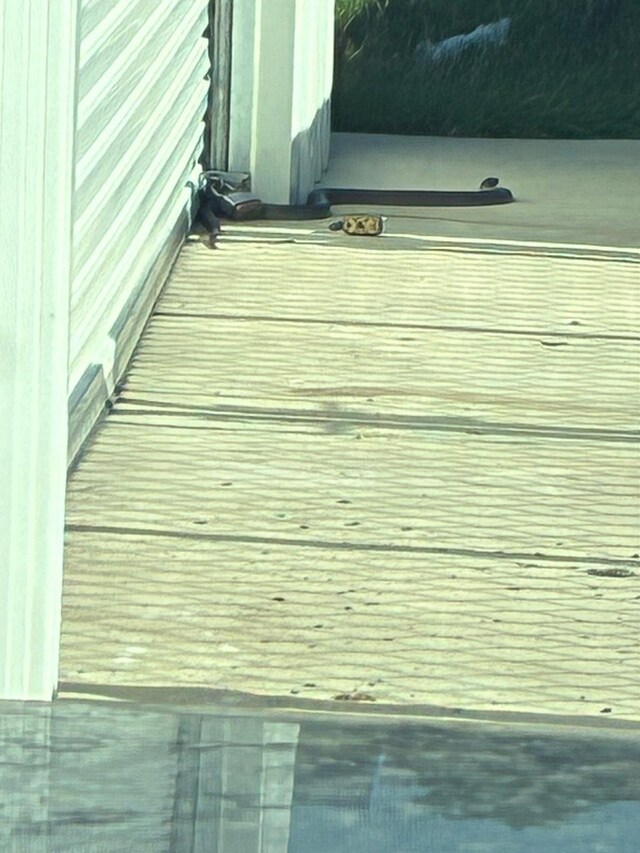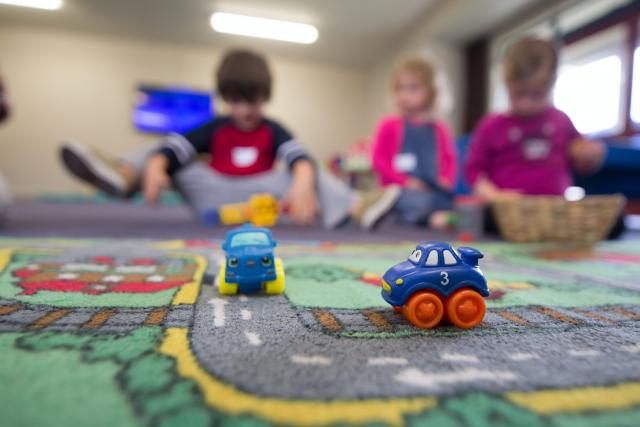Babies, births and Bacchus Marsh were the hot topics when Health Minister David Davis visited Bacchus Marsh Hospital last week.
Mr Davis was at the hospital to announce funding of $3.28 million to expand maternity services at Djerriwarrh Health Services and relocate the central sterile supply unit at the hospital.
Mr Davis said $2.54 million of the funding would go towards relocating the unit next to the main operating theatre and procedure room.
“The new central sterile supply unit will be a stand-alone facility capable of meeting the needs of existing theatre activity,” Mr Davis said.
“It will be used to sterilise a range of instruments and equipment used across the health service; it’s significant as a component of surgery.
“An expansion of this central sterile supply unit will support further expansion of surgical services at Bacchus Marsh in years to come.”
Mr Davis said $740,000 would be spent on expanding the maternity services, including four new maternity beds to respond to the growth and demand of the rapidly growing population.
He said births at Bacchus Marsh hospital had increased from 495 in 2005-06 to 1009 in 2012-13 and looked likely to continue to increase.
“These four additional beds will help respond to this demand, now and in the future and ensure more mothers from this part of the world will be able to give birth close to their families, close to home, close to their communities,” Mr Davis said.
The president of the board of Djerriwarrh, Claire Sutherland, welcomed the announcement and said the additional beds were expected to increase birthing numbers to 1400 a year.
Bacchus Marsh mother of four Tina Borg said the announcement was “brilliant”.
“Having something close to home is really, really good . . . it saves us having to go elsewhere.”
Ms Borg said it was important for all four of her children – including new daughter Gabriella who was born in the hospital last week – to be born in their home town of Bacchus Marsh.
The funding is part of $20 million in grants from the rural capital support fund, which supports health services across Victoria.

